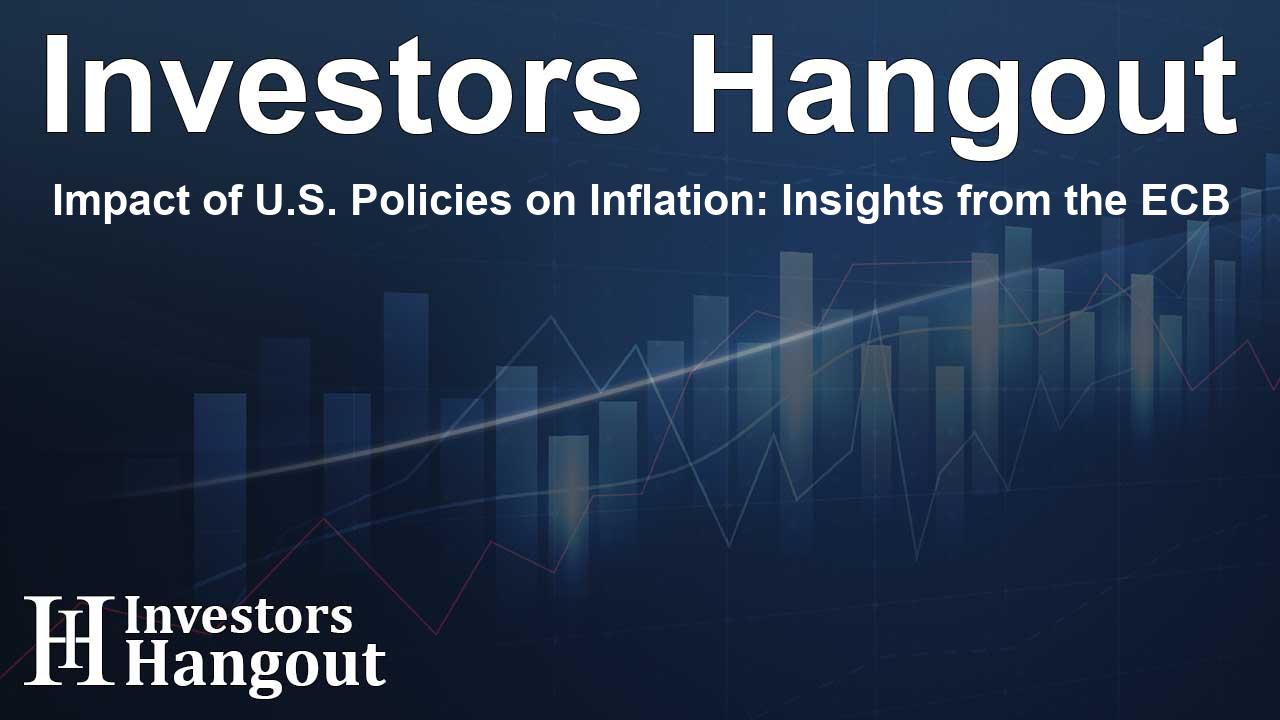Impact of U.S. Policies on Inflation: Insights from the ECB

Impact of U.S. Policies on Inflation: Insights from the ECB
The recent policies introduced by the Trump administration may trigger notable shifts in inflation within the United States. However, Francois Villeroy de Galhau, a key figure at the European Central Bank (ECB), suggests that these changes are unlikely to have a substantial influence on price dynamics in Europe.
Anticipated Inflationary Effects in the U.S.
During a discussion at an economic forum in Davos, Villeroy pointed out that factors such as tariffs and fiscal expansions could create inflationary pressures in the U.S. economy. The administration's approach to trade and fiscal policy presents a blend of opportunities and challenges that could fundamentally reshape the inflation landscape.
Understanding Tariffs and Fiscal Policies
Tariffs, often used as a tool to protect domestic industries, can result in higher consumer prices for imported goods. Coupled with aggressive fiscal measures, such as tax cuts or increased government spending, these policies may drive inflation rates upward as demand potentially outpaces supply.
Limited Impact on European Inflation
Despite the potential inflationary pressures in the U.S., Villeroy believes that Europe will experience minimal disruption. He expressed confidence that the current disinflationary trends within Europe will persist, indicating that the continent has its mechanisms to mitigate inflation risks.
The Outlook for Disinflation in Europe
Disinflation refers to a decrease in the rate of inflation, which is a positive sign for European economies striving for stability. Villeroy’s assessment highlights that the structural factors driving this disinflation process are resilient enough to withstand external pressures from the U.S.
Global Economic Interconnectivity
While the U.S. and European economies are interlinked, with global circumstances often dictating market dynamics, the unique economic conditions in Europe provide a buffer against the kind of inflationary spikes that might reverberate from U.S. policies. The ECB’s vigilance in monitoring economic indicators ensures that Europe remains responsive and adaptable to any emerging trends.
Policy Arrangements and Economic Strategies
Furthermore, Villeroy's insights embody a broader dialogue about policy arrangements that could shape future economic strategies. The ECB’s ongoing commitment to fostering stability through judicious monetary policies plays a crucial role in steering the European economy through turbulent times.
Conclusion
In summary, while the Trump administration’s fiscal strategies may incite inflationary effects in the U.S., the ramifications for Europe seem rather mitigated. Policymakers like Villeroy illustrate a cautious yet optimistic outlook for European markets, underscoring a commitment to sustained economic health amidst external influences.
Frequently Asked Questions
What are the potential inflationary effects of U.S. policies?
The new U.S. administration's tariffs and fiscal expansions may create upward pressure on inflation, primarily through increased demand and higher consumer prices for imports.
How will U.S. inflation affect Europe?
According to ECB's Villeroy, the impact on European inflation is expected to be minimal, as the continent's economic conditions are less susceptible to external inflationary shocks.
What is disinflation?
Disinflation refers to a slowdown in the rate of inflation, indicating that prices are still rising, but at a slower pace, which is generally viewed as a positive economic condition.
Why are tariffs significant in the economic landscape?
Tariffs protect local industries but can lead to increased costs for consumers, thus influencing overall inflation rates in the country imposing them.
How does the ECB respond to inflation risks?
The European Central Bank monitors economic indicators and implements monetary policies designed to ensure economic stability and control inflation levels across Europe.
About The Author
Contact Caleb Price privately here. Or send an email with ATTN: Caleb Price as the subject to contact@investorshangout.com.
About Investors Hangout
Investors Hangout is a leading online stock forum for financial discussion and learning, offering a wide range of free tools and resources. It draws in traders of all levels, who exchange market knowledge, investigate trading tactics, and keep an eye on industry developments in real time. Featuring financial articles, stock message boards, quotes, charts, company profiles, and live news updates. Through cooperative learning and a wealth of informational resources, it helps users from novices creating their first portfolios to experts honing their techniques. Join Investors Hangout today: https://investorshangout.com/
The content of this article is based on factual, publicly available information and does not represent legal, financial, or investment advice. Investors Hangout does not offer financial advice, and the author is not a licensed financial advisor. Consult a qualified advisor before making any financial or investment decisions based on this article. This article should not be considered advice to purchase, sell, or hold any securities or other investments. If any of the material provided here is inaccurate, please contact us for corrections.
